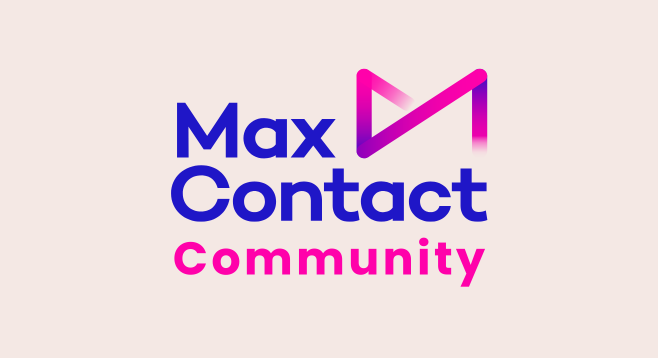Contents:
Cloud-based software, also known as software-as-a-service (SaaS), is an application or service that is hosted and delivered over the Internet by third-party providers. Unlike traditional on-premise software, cloud-based software removes the need for businesses to install and maintain applications on their own servers or computers.
Cloud-based software has become hugely popular in recent years, and for good reason. SaaS (Software as a Service) takes away a number of in-house IT headaches, leaving many technology-related challenges in the specialist hands of a third-party vendor. That frees up businesses to get on with their core activities.
That’s true for companies in many sectors, but particularly so for contact centres. Here, cloud-based software can make a significant difference to efficiency, productivity and ultimately the bottom line.
In the rest of this blog, we’ll explain what the benefits are, and how contact centres can take full advantage.
What is a cloud contact centre?
Very simply, a cloud call centre or contact centre makes all the tools and services necessary to run a contact centre available on the internet. Essentially, it’s contact centre software housed in the cloud. The ability to make and take calls, along with other communications channels and a wealth of complementary features, is delivered as a software service that is run by a third-party vendor. Contact centres access the service through an internet connection.
This is a significant shift from traditional analogue telephone technology, which relied on physical hardware and infrastructure maintained on-premises. With analog systems, businesses had to invest in costly equipment, such as private branch exchanges (PBXs), phone lines, and complex wiring setups. These systems were inflexible, difficult to scale, and required dedicated IT resources to manage and maintain.
In contrast, cloud contact centres eliminate the need for expensive on-premises hardware and infrastructure. Through cloud computing, contact centres can access a fully-featured contact centre solution without the high upfront costs and maintenance overhead associated with legacy systems.
Cloud contact centre vs on-premise contact centre
Before cloud-based software, everyone housed their own contact centre solutions in-house within data centres. They owned and managed the hardware and the software. Some businesses still operate in this way, though the trend is heavily towards cloud. Here are some of the differences:
| ASPECT | ON-PREMISE | CLOUD |
| Software Location | Software housed on-premise | Software housed in the cloud |
| Hardware/Software Ownership | Hardware and software is owned | Hardware and software is leased |
| Maintenance and Upgrades | Company secures, maintains and upgrades solution | Vendor secures, maintains and upgrades solution |
| Pricing Model | Solution is purchased with CapEx | Solution is purchased with OpEx |
| Scalability | Scaling is complex, requiring new purchases | Scaling is simple – just add seats to the licence |
| Feature Updates | New features are rare, upgrades difficult to administer | New features are common, updates pushed live regularly |
The features of cloud contact centres
One of the advantages of cloud contact centres is the wide range of advanced features they offer, which help contact centres improve operations, boost customer experiences and gain valuable data insights. These features can help to strengthen both inbound and outbound activity.
Let’s take a look at some of them:
- Workforce Management
Cloud contact centres provide workforce management tools that optimise agent productivity and scheduling processes. Features like skill-based call routing make sure customer interactions are routed to the most qualified agents. In turn, this improves first-call resolution rates and customer satisfaction. Real-time monitoring and analytics also give supervisors better visibility into agent performance. It helps supervisors intervene earlier and provide targeted coaching to their call agents.
- Customer Engagement
Allowing customers to communicate on their preferred channels is fast becoming an expectation in today’s omnichannel world. Cloud contact centre platforms can facilitate customer engagement away from traditional phone calls. Customer support is offered through self-service options like chatbots and interactive voice response (IVR) systems.
Customers can communicate through multiple channels (voice, email, social media, etc.) and easily transition between them without losing context. This is enabled by intelligent agent routing, which connects customers to agents they have previously spoken with.
- Reporting and Analytics
Gaining actionable customer data and insights drives continuous improvement in contact centre operations. Cloud solutions have comprehensive reporting and analytics capabilities, and can track agent performance metrics, customer satisfaction scores, and other key performance indicators (KPIs). Features like call recording and quality monitoring help identify areas for improvement and inform training programs, ultimately leading to enhanced customer experiences.
- Speech Analytics
Speech analytics is a powerful tool that gives contact centre managers better insight into call agent performance. With speech analytics software, contact centres can monitor call recordings for quality assurance, ensure compliance with regulations and optimise agent performance through targeted training. This drives improvements across service quality, operational efficiency and customer experience. Cloud-based software’s scalable computing power and storage can handle large volumes of voice data and integration with other data sources.
Seven reasons why cloud contact centre solutions are the better choice
Aside from the wide range of features cloud-based contact centres offer, there are many other reasons why the trend is heavily leaning towards cloud.
- Scalability: Cloud solutions make it simple to scale up or down. You don’t own the solution, so you just add or remove seats from your licence. It can be done in a couple of mouse clicks, it’s that easy.
- Flexibility: On premise solutions can expand to include remote or travelling workers, but it’s tricky. By contrast, a cloud solution is available anywhere, anytime, wherever you have an internet connection. It’s made for hybrid work and a new world of flexible working.
- Enhanced customer experience: Cloud contact centre platforms bring together a multi-channel experience, combining inbound and outbound calls, text, chat, email and more into a complete customer communications solution. At the same time, powerful analytics let you continually refine customer journeys. It all adds up to a more satisfactory customer experience.
- Increased collaboration: With the right implementation, cloud contact centre software can easily integrate with other systems and processes, sharing data and improving information flows across your organisation. It opens up silos, increases collaboration and leads to better, data-driven decision making.
- Seamless integrations: Cloud-based solutions make it easier to integrate with other systems due to their API-driven architecture and pre-built integrations, allowing you to link up all of your platforms for a seamless experience.
- Better data management: Cloud software automatically collects and saves data. Good systems then put powerful analytics tools to work on it, sifting it for valuable insight in the form of customer trends or agent behaviour.
- Cost savings: On top of it all, cloud can save you money. You lease the service rather than owning it, replacing a variable CapEx cost with a predictable OpEx one. You can also say goodbye to maintenance contracts and emergency engineer call out fees. At the same time, you free up in-house IT for more creative tasks. New features are often provided as part of the contract.
Preparing for a successful implementation
What do you need to consider before switching from an on-premise to a cloud-based contact centre solution? And how do you make sure you’re choosing the best contact centre software solutions for your call centre?
Choosing the right provider
Not all contact centre solution providers are the same. There are significant differences in the quality of their products – particularly dialler algorithms and data analytics – and the variety of features they offer.
Check certifications (especially in regard to security and data privacy), ask who else they work with and request to see the solution in action. Talk to a variety of people – do they understand the needs of contact centres?
Migrating to a cloud contact centre
You need to put a migration strategy in place, to make sure day-to-day operations are not affected by the transition to a new system. Liaise with your vendor and get firm commitments on essential questions: when the switch will happen, how long it will take and what support they offer. Prepare staff well in advance.
Training and support
Talking of staff, make sure agents are fully up to speed with the new system before you let them loose in the wild. Your vendor should offer comprehensive training and support as part of the service. If not, consider another vendor.
Integrating with other technology
One of the main advantages of cloud-based solutions is that they can easily integrate with your other systems and technologies and turn your contact centre into an information powerhouse.
For example, when your contact centre, payments and CRM solutions work together, agents go into calls equipped with a complete summary of customer activity at their fingertips. So always ask: will your new solution work with your established systems? Ask the vendor.
Some, like MaxContact, will create new APIs (the tech that lets digital systems speak to each other) if an existing one is not available. In fact, we add new integrations all the time.
Implementing cloud solutions: the benefits in action
We’ve helped many businesses successfully switch from on-premise to cloud-based contact centre software.
Take ICX, for example, a prominent player in the automotive industry. ICX struggled with frequent glitches, limited functionality, and inadequate support using their on-premises contact centre system. It was impacting their growth and ability to meet clients’ multi-channel needs.
ICX partnered with MaxContact, and we helped to migrate them to our flexible cloud-based contact centre, which offered omnichannel capabilities, easy integration and reliable support.
By migrating to MaxContact’s cloud contact centre solution, ICX has overcome the limitations of their legacy system and gained the agility, scalability, and omnichannel capabilities needed to deliver superior customer experiences and drive sustainable growth.
Thanks to the system’s advanced features and improved reliability, contact rates with decision-makers increased by over 30%, from 7-8 per hour to 11-12 per hour.
Unlock the potential of a cloud contact centre solution
It really is the era of cloud, and that’s as true in the contact centre as it is in any other area of business. Cloud offers huge advantages in terms of scalability, flexibility, customer experience, collaboration and even cost. It brings new efficiencies and better ways of working. It should be the future of your contact centre.
Ready to harness the power of a cloud contact centre solution for your contact centre? Book a demo today.
Meta Description
Explore how implementing cloud-based software can enhance inbound and outbound contact centre operations.





